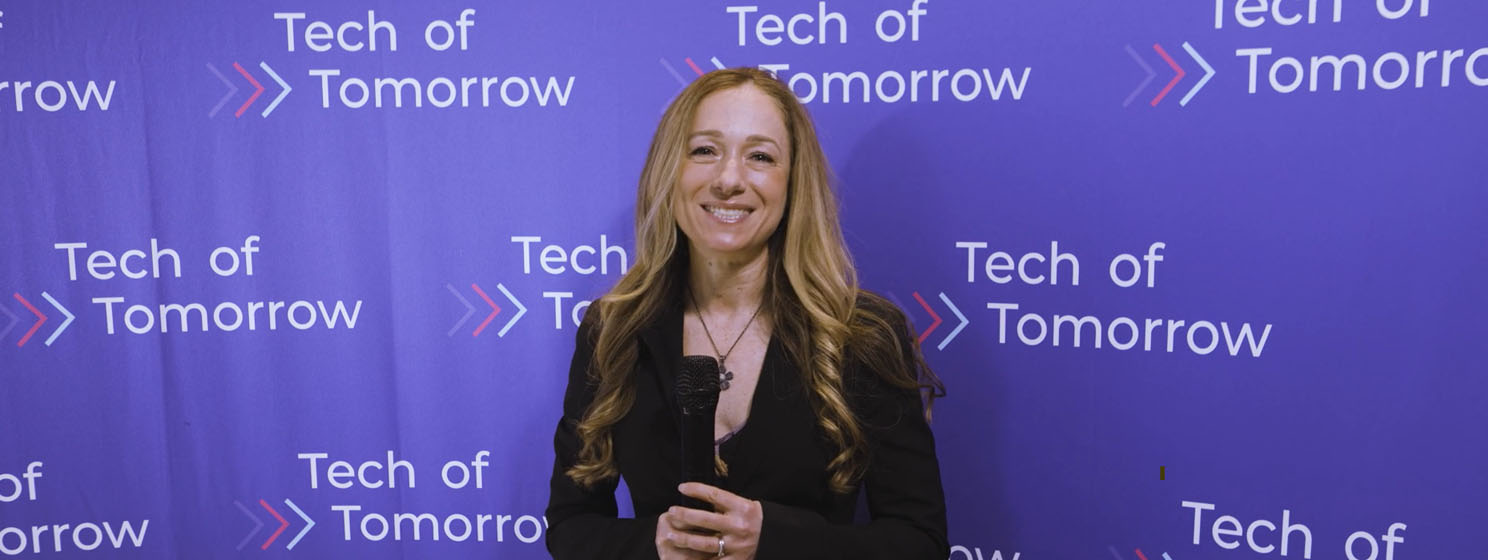|
Getting your Trinity Audio player ready...
|
The Tech of Tomorrow took place March 19 and 20 in Poznan, a hidden gem in West Poland, midway between Warsaw and Berlin. The event organizers—both from Poznan—moved the event to the quaint city because it’s something new and also a hotbed of frontier technologies such as blockchain, artificial intelligence (AI), and the Internet of Things (IoT), the focus of Tech of Tomorrow.
“This event has been the biggest one we’ve organized to date. We’re feeling that there is the need for people to deep dive more into certain tech topics, and we wanted to give them the practical aspect of it so how can they take these tools of tomorrow—the tech of tomorrow—but use it today,” Dr. Agata Slater, Tech of Tomorrow’s Co-Founder and Program Director, shared with CoinGeek.
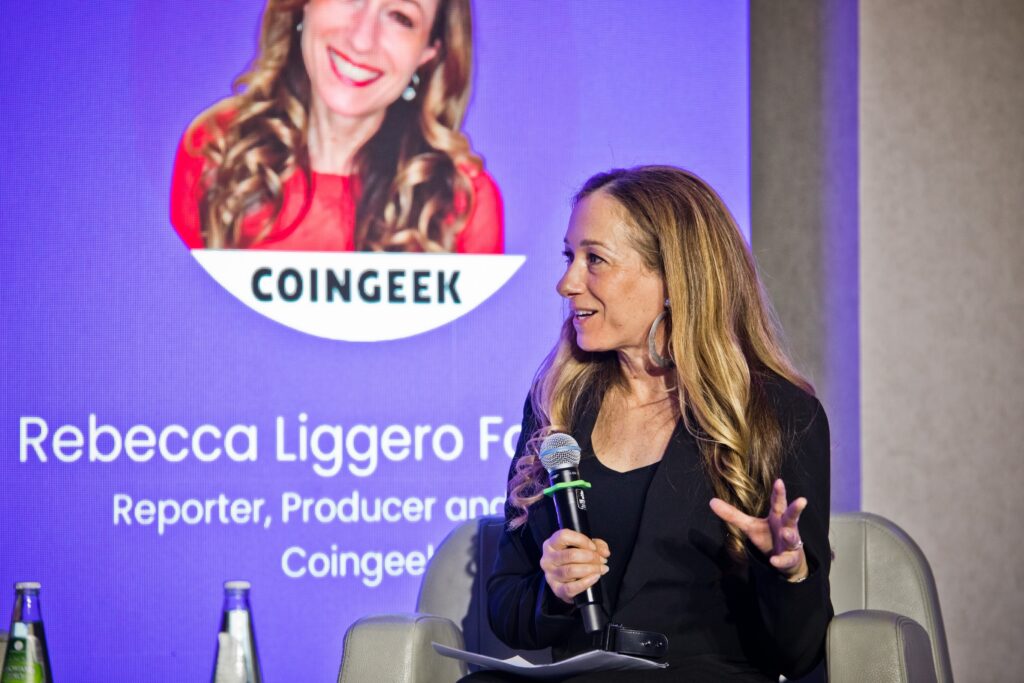
Tech of Tomorrow featured three stages: a business stage, a tech stage, and a workshop stage, in addition to the “Innovators of Tomorrow” start-up pitch with local high school students and a Hackathon over the weekend.
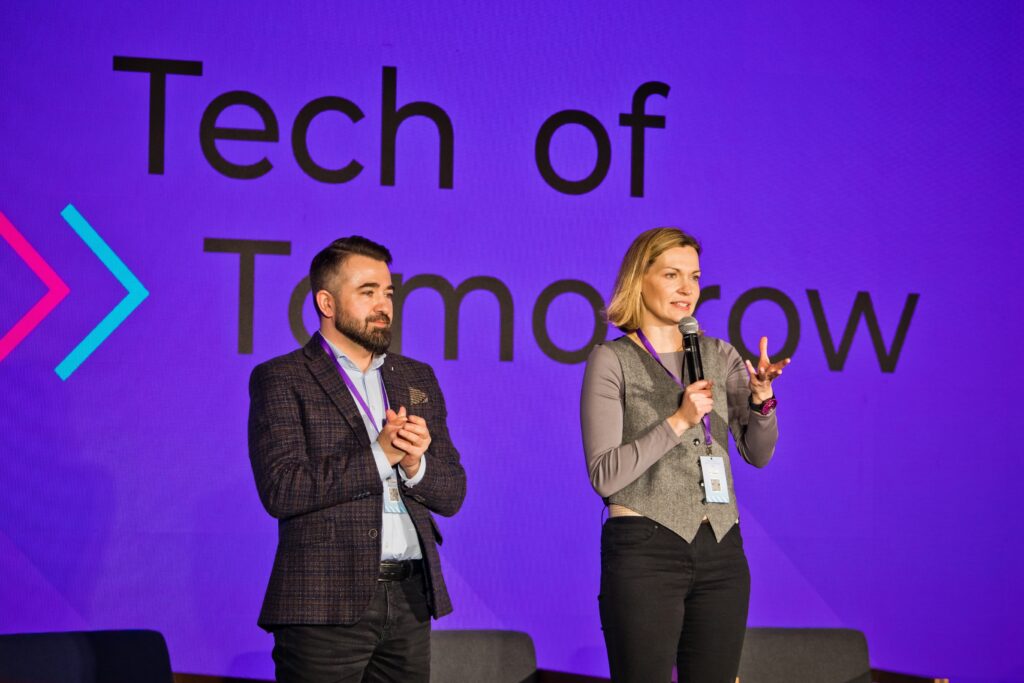
According to the organizers, the tech stage was a highlight for delegates because it provided an opportunity to see the latest tech tools in action. The workshop stage complimented the learning experience by allowing delegates to try out these new tools.
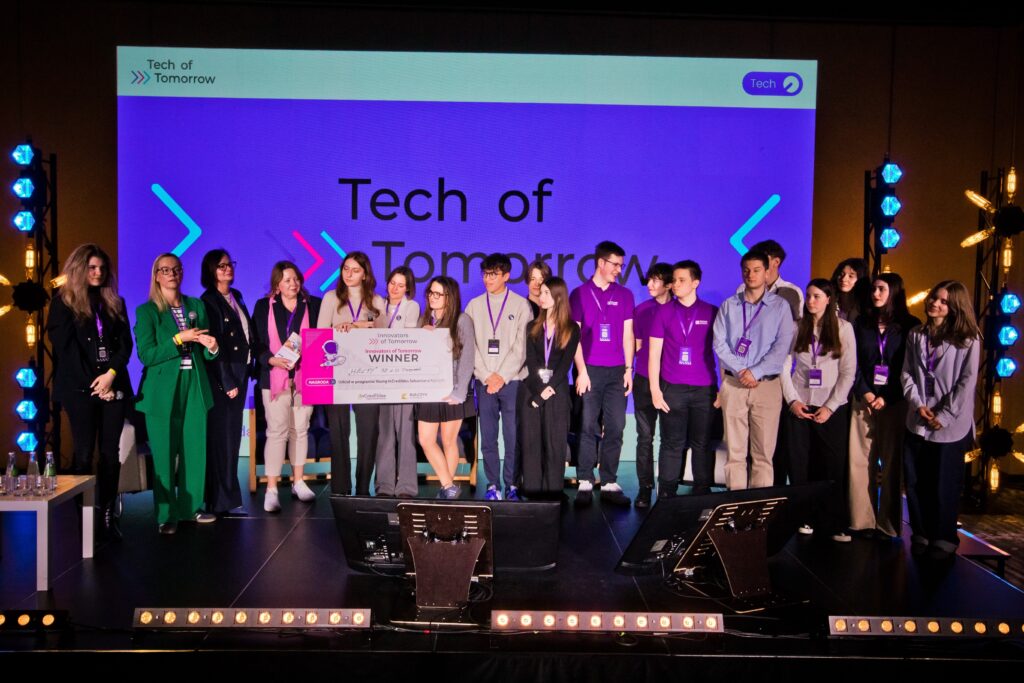
Ásgeir Thór Óskarsson, Managing Director for the BSV Association (BSVA), was on stage both days of the event, moderating a panel on the business stage and delivering a presentation and participating in a panel on the tech stage.
“The cool thing about this conference is that it’s really focused on tech and how it can influence,” Oskarsson shared with CoinGeek after he finished on the tech stage.
“I just came off a panel talking about AI and blockchain; I was able to mention some use cases in our ecosystem, such as Rekord and MintBlue, and SmartGrow; it’s just brilliant, and people really get it. So it’s really nice environment to be,” he said.
Roman Bieda, Head of Investigations for Token Recovery, led one of the workshops, educating delegates on how stolen digital assets can be traced and recovered using Token Recovery’s blockchain, forensics, and legal expertise.
“We’ll touch on investigations a bit, we’ll explain basics of our work, daily work, we’ll show some failures of crypto influencers who speak about anonymity but at the same time they disclose their wallet without their intention. We will talk about types of crimes in blockchain that happen these days and basically everything about our work you will hear there,” Bieda said.
One of the main themes running throughout the event was how frontier technologies work together. An example of this is blockchain as a trust enabler for AI and IoT.
“What blockchain brings is this decentralization of the governance of the very bottom layer,” shared AI expert Maria Minaricova, Director of Business Development at Fetch.ai.
“So when you look at it from the agent’s perspective, and then we both register these agents in this decentralized infrastructure on the blockchain in a smart contract, our agents then connect,” she explained.
“So that means that you keep the privacy of your data, I keep the privacy of mine, and then we can connect many, many ecosystems this way. It’s a cross-pollination that is really amazing, and I think this will really be the future,” she added.
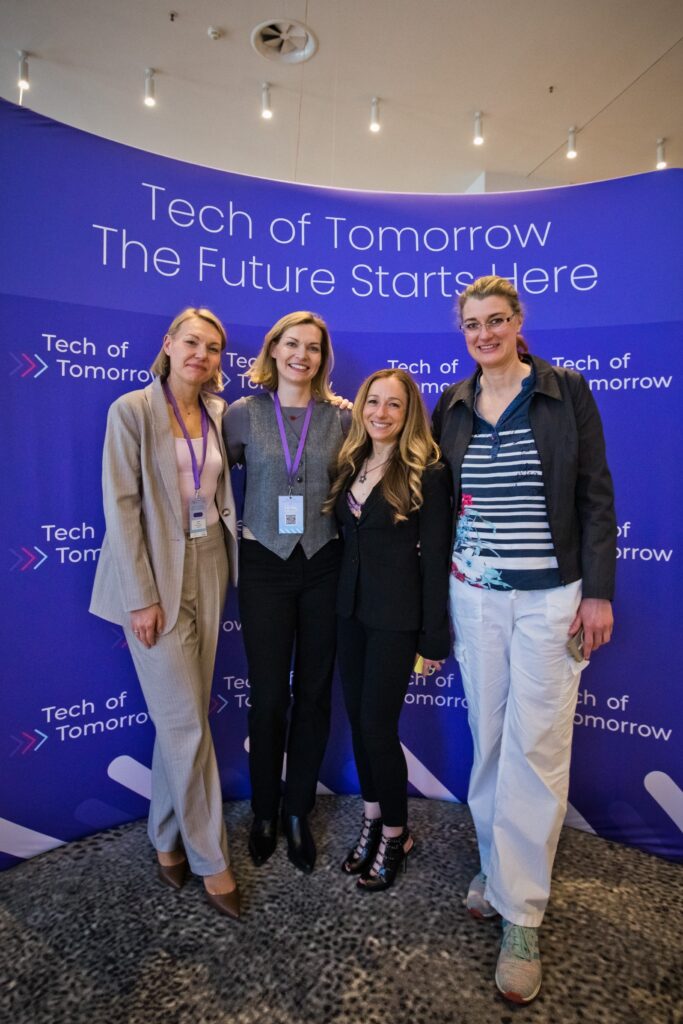
One of the biggest names at the event included Brian Witten, Vice President and Chief Product Security Officer of APTIV, a global technology company specializing in smart vehicles. He spoke on how AI is disrupting industries by pushing data to the edge while respecting data privacy and autonomy. He also touched on “quantum-resistant crypto” and how blockchain ensures trust in critical systems.
“I think distributed ledger technologies like blockchain really allow capturing secure pedigree authenticity of information from every participant,” Witten shared with CoinGeek after his presentation.
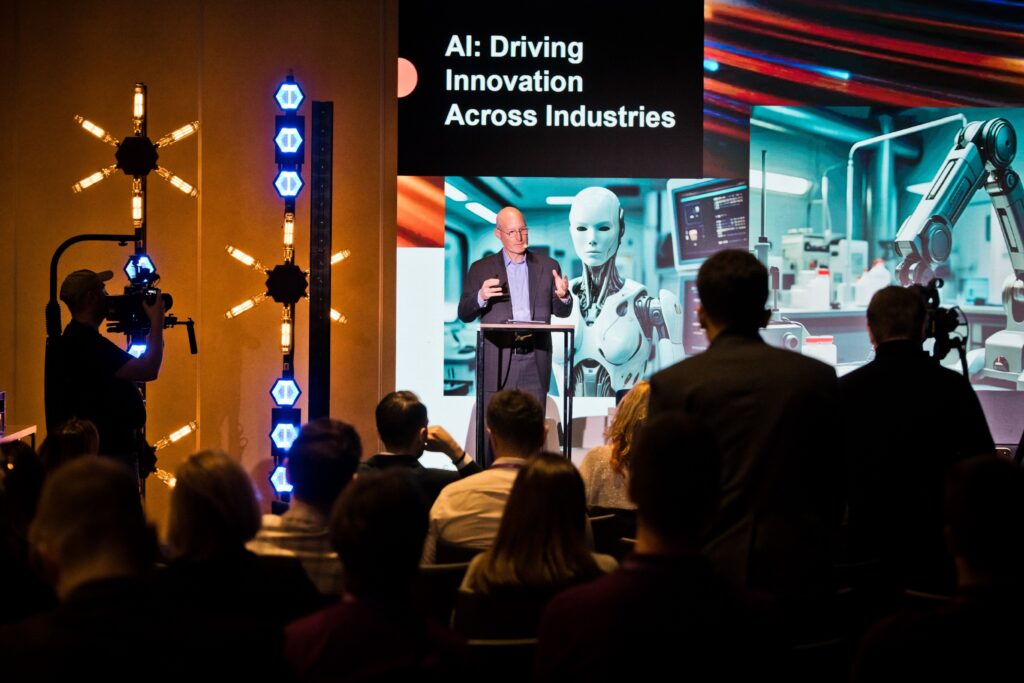
“So as you think about what happens in a car between a sensor, maybe a zonal controller, a central controller and communication up through a cloud, maybe a couple of different cloud service providers down to a handset, the ability to have cryptographic integrity protecting every step of the way really adds that strength,” Witten said.
The gaming industry is notoriously ripe for frontier tech such as AI and blockchain, with some predicting a blockchain-powered killer gaming app could even push the protocol to mass adoption. Speaker Wojciech Gruszka, CEO of GameSwift, provided examples of how AI agents could disrupt the gaming space and explained why blockchain within gaming hasn’t taken off just yet.
“The history of gaming is full of the examples where the new technology, which was initially criticized, turned out to be the prevailing one, and I feel like blockchain and AI is going to be the same case,” Gruszka shared with CoinGeek.
“So I feel like in order to tick all the boxes and reach this milestone of mainstream adoption, we need to onboard the mainstream IPs like big TV series, big books into the blockchain gaming,” he advised.
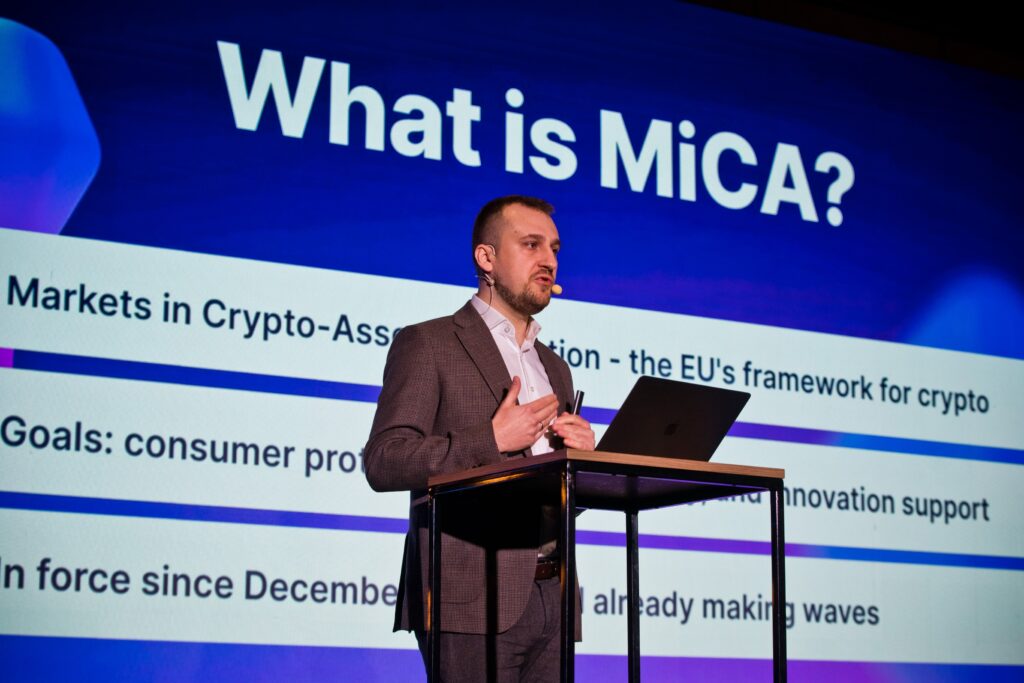
Another theme running throughout the event was innovating within regulations. Plenty of discussion revolved around the recent European regulation on Markets in Crypto-Assets, aka “MiCA.”
Thomas Giacomo, Head of Payment at Teranode Group, delivered a presentation on central bank digital currencies (CBDCs) and stablecoins, inspiring a number of thoughtful questions coming in from the audience regarding MiCA.
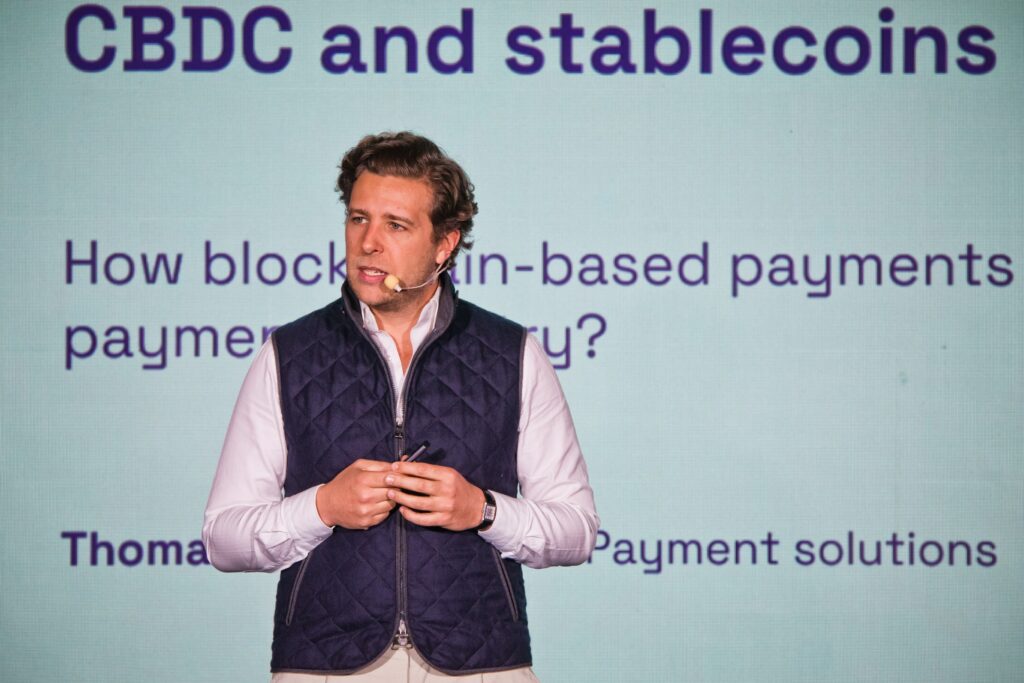
“The way MiCA will impact the stablecoin is that today, the majority of exchanges will require stablecoin to be MiCA compliant, which is a good thing because we bring more professionalism and processes to the stablecoin industry, which was until now not very mature,” Giacomo explained.
“MiCA will bring more clarity in Europe, but a lot of other regions of the world are getting inspired by MiCA for their local regulation, which is, again, a good thing,” he emphasized.
Watch: Bitcoin Retrospective and a Focus on the Future of the Internet with Mike Hearn

 02-21-2026
02-21-2026 
